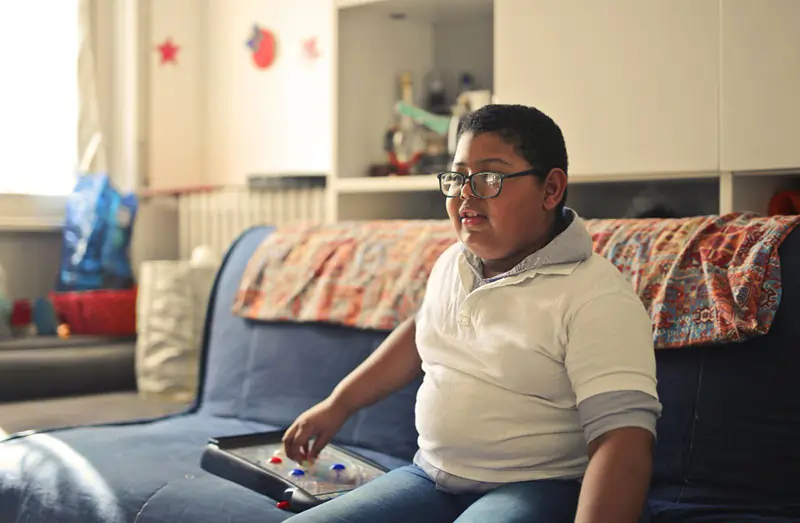Childhood Obesity: Tips for Parents and Caregivers
by Dr. Shanthi Thomas
Shane hardly spoke to anyone at school. At recess time, what did she do? She did not go to the playground. She sat alone at her desk, reading a book. Often, she would long to talk, but it looked as though no one was interested in talking to her. She hated looking at the mirror.
Shane had childhood obesity.
If you have a child who was obese, what do you do?
Important tips for parents and caregivers
- Get your child tested for hormonal problems. There are also genetic conditions that may cause childhood obesity. If there is a confirmed problem, treat her as soon as possible. Be consistent with your treatment plan.
- Support and accept the child on her way to recovery. Avoid blaming the child, yourself or anyone else. Remember, no one wants to be obese. Avoid passing comments on her looks or weight.
- Change the family’s eating habits and physical activity towards more healthy ways. Avoid snacking in front of the television. Do not put snacks in the car for eating on long drives. As a principle, do not eat while travelling.
- Reduce the time the family spends in front of the television or on mobile phones. Set a time to watch television such as the 9 pm News etc. At this time and age, smartphones are a necessity but use sparingly.
- Have a regular, healthy bed time. Avoid time with electronic devices for an hour before sleep. Observe sleep hygiene. Avoid watching or reading disturbing stories or movies before sleep. Change into comfortable clothing for sleep. Your child’s bedroom should be as dark as possible. Also, as cool as possible.
- Plan family activities such as Sunday outings when everyone in the family spends time outdoors. This can be a ritual in the family. If children are brought up from young observing this ritual, they will follow it lifelong. This time outdoors can be spent playing ball, or any other outdoor stuff.
- Cook delicious meals at home. Eat out only on special occasions: Birthdays or anniversaries. Invest some time in preparing food that is healthy and at the same time delicious. Even more delicious than restaurant food.
- Provide a wide variety of healthy foods at home such as fruits and vegetables smoothies. Make it easy to access these foods. For example, fruits such as apples or pears can be cut and put on the dining table when children come back from school.
- Involve the child in food shopping and preparing healthy meals. Make it a regular practice to read labels to decide if a food item is healthy or not. This will lay the foundation for her adult behavior with regard to eating.
- Encourage your child to chew multiple times before swallowing food. According to experts, food should be chewed 32 times before being swallowed. Remember that the one who eats fast eats a lot more than the one who eats slowly.
- Eat meals together as a family and make mealtimes pleasant and happy. Avoid arguing during meal times. If parents fight at meal times, children will want to eat fast and leave. Then they associate eating with stress.
- Eat only in designated areas of the house such as the dining room or kitchen. Never ever allow the child to keep snacks in her room or eat on her bed.
- Do not use food as a reward. This will make her think that the food given as a reward is better than other food. Never offer ice cream if they eat their vegetables. This will make the child believe that ice cream is better food than vegetables.
- If the child has a binge-eating problem, find out what causes the binging. Understand the underlying problem. It could be psychological issues such as anxiety, phobias, depression, post-traumatic stress disorder (PTSD), bipolar disorder, or substance abuse. Get the child treated for the problem. Often, the treatment is long-term.
- Talk to the child and motivate her to start an exercise regimen. It could be something she enjoys. Let her dance. Let her play a sport. Let her walk on the treadmill while watching a movie. Let her play ball outside the house with her friends.
- Get her interested in taking care of her body. This is important if she has to get her weight under control. Get her good-looking clothes or beauty accessories if you can afford them.
- Spend time with her and understand what could be preventing her from a healthy lifestyle. Be her companion and confidante. Let her know that you are there supporting her through thick and thin.


